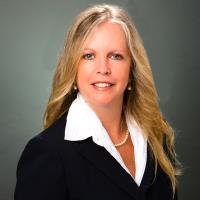Business Valuation and Financial Litigation—How to Do It: From Foundations to Advanced
Using Regression Analysis in the Market Approach (GCTM)
Tuesday, December 1010:00 a.m.–12:30 p.m.
The attendees will learn how to use Excel's regression analysis and to apply it to Market Approach
methodologies. Learn how regression analysis can filter a sample of comparables to statistically identify
outliers that are skewing one's data significantly. Attendees will be shown how to use regression to
statistically predict the proper revenue multiplier and cash flow multiplier for the subject, thus, eliminating
the messy subjective selection process. Learn why every appraiser makes a critical error when
selecting upper or lower quartile or standard deviation of the multipliers to apply to his Subject
Company. Attendees will be given an Excel Template that will produce quick valuations using the regression methods taught in the seminar.
After completing this session, attendees will be able to:
• Demonstrate the GCTM Market Approach
• Explain why this tool eliminates incorrect values produced by cash flow and revenue multipliers
• Identify statistical outliers that may skew results
Total CPE: 3 hours
Field(s) of Study: Accounting—1 hour; Computer Software and Applications—1 hour; Production—1 hour
methodologies. Learn how regression analysis can filter a sample of comparables to statistically identify
outliers that are skewing one's data significantly. Attendees will be shown how to use regression to
statistically predict the proper revenue multiplier and cash flow multiplier for the subject, thus, eliminating
the messy subjective selection process. Learn why every appraiser makes a critical error when
selecting upper or lower quartile or standard deviation of the multipliers to apply to his Subject
Company. Attendees will be given an Excel Template that will produce quick valuations using the regression methods taught in the seminar.
After completing this session, attendees will be able to:
• Demonstrate the GCTM Market Approach
• Explain why this tool eliminates incorrect values produced by cash flow and revenue multipliers
• Identify statistical outliers that may skew results
Total CPE: 3 hours
Field(s) of Study: Accounting—1 hour; Computer Software and Applications—1 hour; Production—1 hour
Who Should Attend:
Business appraisal practitionersProgram Level and Prerequisites:
Intermediate: Learning activity level that builds on a basic program most appropriate for individuals with detailed knowledge in an area.Advanced Preparation:
NoneFred Hall
Read BiographyBuilt-in Gain Tax Liability—How Future Value Analysis Fails and What to Do About It; The Origins of Intangible Value—Distinguishing Value-in-Exchange from Value-to-the-Holder
Tuesday, December 101:30 p.m.–3:10 p.m.
This session presents the evolution in Tax Court thinking that led to the misguided 2014 Estate of Richmond decision. It then presents the correct economic method to provide a proper answer to the value of built-in gain based on a future exit date. The question at hand is whether a speculative approach is appropriate. Because it is based in fact, accrual based valuation has the fairest basis for built-in gain valuation, but the Richmond ruling demands that taxpayers be ready to defend against the Tax Court’s methodology with an economic rebuttal.
After completing this session, attendees will be able to:
• Describe the history of BIGL
• Identify the faulty analysis that Led the IRS Astray
• Explain how to avoid an IRS argument for future value
• Present the correct model to solve the BIGL Question
Total CPE: 2 hours
Field(s) of Study: Economics—2 hours
After completing this session, attendees will be able to:
• Describe the history of BIGL
• Identify the faulty analysis that Led the IRS Astray
• Explain how to avoid an IRS argument for future value
• Present the correct model to solve the BIGL Question
Total CPE: 2 hours
Field(s) of Study: Economics—2 hours
Who Should Attend:
Attorneys, Practitioners, Estate Trustees, FiduciariesProgram Level and Prerequisites:
Intermediate: Learning activity level that builds on a basic program most appropriate for individuals with detailed knowledge in an area.Advanced Preparation:
NoneJames Lisi
Read BiographyAre the Experts Even Working on the Same Case? How to Reconcile Significant Differing Expert Opinions
Tuesday, December 101:30 p.m.–3:10 p.m.
When damages are at stake, the plaintiff and defendant often hire damage experts to help the trier of fact determine the appropriate amount to award to the injured party if liability is established. Each expert is supposed to provide an objective analysis of the case and opine with reasonable certainty to the damages that were incurred. So why does it often seem that the two experts arrive at damage opinions that look like they belong in two different cases? Why is the plaintiff’s expert’s opinion of damages almost always higher than the defendant’s expert’s opinion of damages? This session will use real case examples to explore the reasons why divergent opinions can occur.
After completing this session, attendees will be able to:
• Identify common reasons that expert’s opinions can be so different
• Develop strategies for addressing these differences in their report or in deposition
Total CPE: 2 hours
Field(s) of Study: Accounting—2 hour
After completing this session, attendees will be able to:
• Identify common reasons that expert’s opinions can be so different
• Develop strategies for addressing these differences in their report or in deposition
Total CPE: 2 hours
Field(s) of Study: Accounting—2 hour
Who Should Attend:
CPAs, valuators, practitioners, etc.—anyone interested in developing and advancing their skills for this topic.Program Level and Prerequisites:
Intermediate: Learning activity level that builds on a basic program most appropriate for individuals with detailed knowledge in an area.Advanced Preparation:
NoneKeith Hock
Read BiographyThe Baby Boom Tsunami of Exiting Owners Has Reached the Shoreline—How to Position Your Practice to Address the Marketplace Opportunity
Tuesday, December 103:30 p.m.–5:10 p.m.
This session will discuss and analyze the baby boomer population of business owners who are looking today to grow and / or exit their privately-held businesses.
The session will provide owner demographics (i.e., what the advisor should be looking for), how to identify these owners in the attendees' current client / prospect base, as well as introduce a case study of a sample owner.
The content will cover three main areas: (1) how and where valuation is critical to the initial and ongoing conversations; (2) what drivers of value can be improved and/or demonstrated for an exit; and (3) what exit options are available.
The session will apply these concepts to the case study so that attendees can put theory into action and return to their businesses and begin to engage business owners at a new and higher level.
After completing this session, attendees will be able to:
• Recognize and describe the opportunity with baby boomer business owners and their businesses in today’s market
• Identify the faulty analysis that Led the IRS Astray
Total CPE: 2 hours
Field(s) of Study: Business Management and Organization—1 hour; Finance—1 hour
The session will provide owner demographics (i.e., what the advisor should be looking for), how to identify these owners in the attendees' current client / prospect base, as well as introduce a case study of a sample owner.
The content will cover three main areas: (1) how and where valuation is critical to the initial and ongoing conversations; (2) what drivers of value can be improved and/or demonstrated for an exit; and (3) what exit options are available.
The session will apply these concepts to the case study so that attendees can put theory into action and return to their businesses and begin to engage business owners at a new and higher level.
After completing this session, attendees will be able to:
• Recognize and describe the opportunity with baby boomer business owners and their businesses in today’s market
• Identify the faulty analysis that Led the IRS Astray
Total CPE: 2 hours
Field(s) of Study: Business Management and Organization—1 hour; Finance—1 hour
Who Should Attend:
Advisers who want to add business owner consulting to their practice.Program Level and Prerequisites:
Intermediate: Learning activity level that builds on a basic program most appropriate for individuals with detailed knowledge in an area.Advanced Preparation:
NoneJohn Leonetti
Read BiographyChris Mellen
Read BiographyMeasurement Strategies—Managing Business Interruption Claims
Tuesday, December 103:30 p.m.–5:10 p.m.
This workshop will cover the issues involved in calculating lost business Income under common insurance coverages.
After completing this session, attendees will be able to:
• Identify at least three issues impacting the Period of Restoration
• Identify the attributes of Extra Expenses which would make them covered under a common insurance policy
• Describe and apply two different Business Income calculation formats
Total CPE: 2 hours
Field(s) of Study: Accounting—2 hours
After completing this session, attendees will be able to:
• Identify at least three issues impacting the Period of Restoration
• Identify the attributes of Extra Expenses which would make them covered under a common insurance policy
• Describe and apply two different Business Income calculation formats
Total CPE: 2 hours
Field(s) of Study: Accounting—2 hours
Who Should Attend:
CPAs, valuators, practitioners, etc.—anyone interested in developing and advancing their skills for this topic.Program Level and Prerequisites:
Intermediate: Learning activity level that builds on a basic program most appropriate for individuals with detailed knowledge in an area.Advanced Preparation:
NoneKerrie Merrifield
Read BiographyJoe Epps
Read Biography
The performance of equity investments is inextricably linked to economic growth. The estimate of a long-term sustainable growth rate for a business enterprise is a key input for valuation estimates using the Income Approach. Growth rate assumptions are also embedded in market multiples. Growth rate estimates are available from both theoretical models as well as empirical sources and can be measured in a variety of ways (e.g., revenues, free cash flow to the firm, free cash flow to equity, etc.). Further, the appropriate length of the discrete valuation period (i.e., the foreseeable future) in the discounted cash flow model should be set once the growth in the cash flow stream being valued is expected to gravitate to the expected long-term, (i.e., “the forever”) normalized growth rate.
Research on long-term growth rate estimates disclosed in SEC filings suggests a wide range of growth estimates have been used by appraisers. And what is the relationship between the long-term sustainable growth rate to be used to the growth rates often provided by security analysts? What are the differences in underlying assumptions? Economists have also raised questions regarding the sustainability of long-term growth rates. Does the risk of the cash flows change over time and how can this changing risk be reflected in the discount rate? The presenters will explore this important valuation input.
After completing this session, attendees will be able to:
• Describe the relationship between the long-term sustainable growth rate to be used to the growth rates often provided security analysts
• List the differences in underlying assumptions
• Identify questions raised by economists regarding the sustainability of long-term growth rates
Total CPE: 3 hours
Field(s) of Study: Accounting—3 hours
Research on long-term growth rate estimates disclosed in SEC filings suggests a wide range of growth estimates have been used by appraisers. And what is the relationship between the long-term sustainable growth rate to be used to the growth rates often provided by security analysts? What are the differences in underlying assumptions? Economists have also raised questions regarding the sustainability of long-term growth rates. Does the risk of the cash flows change over time and how can this changing risk be reflected in the discount rate? The presenters will explore this important valuation input.
After completing this session, attendees will be able to:
• Describe the relationship between the long-term sustainable growth rate to be used to the growth rates often provided security analysts
• List the differences in underlying assumptions
• Identify questions raised by economists regarding the sustainability of long-term growth rates
Total CPE: 3 hours
Field(s) of Study: Accounting—3 hours
Who Should Attend:
CPAs, valuators, practitioners, and those interested in developing and advancing their skills.Program Level and Prerequisites:
Update: Learning activity level that provides a general review of new developments.Advanced Preparation:
NoneRoger Grabowski
Read BiographyProfessor Ashok Abbott
Read BiographySimplifying the Valuation Report—Assuring the Reader “Gets It”
Wednesday, December 111:30 p.m.–3:10 p.m.
This session starts with the premise that our valuation reports have become so lengthy, detailed, and complicated, that the average reader has a hard time understanding anything other than the valuation conclusion. I propose three steps to ensure our reports can be understood by every reader, no matter their knowledge and experience with valuation science.
These three steps, if included in every valuation report, will help increase understanding, reduce confusion, and avoid prolonged controversy.
After completing this session, attendees will be able to:
• Improve the readability of their valuation reports
• Assist their clients in resolving valuation controversies
• Communicate more effectively with clients, client prospects, and potential adversaries
Total CPE: 2 hours
Field(s) of Study: Communications and Marketing—2 hours
These three steps, if included in every valuation report, will help increase understanding, reduce confusion, and avoid prolonged controversy.
After completing this session, attendees will be able to:
• Improve the readability of their valuation reports
• Assist their clients in resolving valuation controversies
• Communicate more effectively with clients, client prospects, and potential adversaries
Total CPE: 2 hours
Field(s) of Study: Communications and Marketing—2 hours
Who Should Attend:
Valuators responsible for writing and or reviewing valuation reports, attorneys engaging valuation specialists, and other users of technical valuation reports.Program Level and Prerequisites:
Intermediate: Learning activity level that builds on a basic program most appropriate for individuals with detailed knowledge in an area.Advanced Preparation:
NoneHoward Lewis
Read BiographyScams, Schemes, and Swindles—Fundamentals and Techniques for Conducting Fraud Investigations
Wednesday, December 111:30 p.m.–3:10 p.m.
If you are working in the forensic accounting field (either externally or internally) at some time in your career it may be necessary to conduct a fraud investigation. This course is designed to review the procedures for conducting fraud investigations. We will review the steps and discuss potential pitfalls as well as some of the legal issues involved in conducting fraud investigations. Real world examples will be provided to help the participants understand the material in the course. We will cover basic fraud schemes and scams and how the criminals perpetrate these frauds.
After completing this session, attendees will be able to:
• Identify basic fraud schemes
• Identify the procedures for conducting a fraud investigation
Total CPE: 2 hours
Field(s) of Study: Auditing—2 hours
After completing this session, attendees will be able to:
• Identify basic fraud schemes
• Identify the procedures for conducting a fraud investigation
Total CPE: 2 hours
Field(s) of Study: Auditing—2 hours
Who Should Attend:
This course is appropriate for CPAs, CFEs, external auditors, internal auditors, CIAs, forensic accounts, CFFs, MAFFs, law enforcement personnel and others who might be involved in searching for hidden assetsProgram Level and Prerequisites:
Basic: Learning activity level most beneficial to individuals new to a skill or an attribute.Advanced Preparation:
NoneDr Robert Minniti
Read BiographyBusiness Valuation Reporting and Challenges in the Ligation Environment
Wednesday, December 113:30 p.m.–5:10 p.m.
Information Forthcoming
Who Should Attend:
Valuators responsible for writing and or reviewing valuation reports, attorneys engaging valuation specialists, and other users of technical valuation reports.Program Level and Prerequisites:
Overview: Learning activity level that provides a general review of a subject area from a broad perspective.Advanced Preparation:
NoneFrank Rosillo
Read Biography
Information Forthcoming













